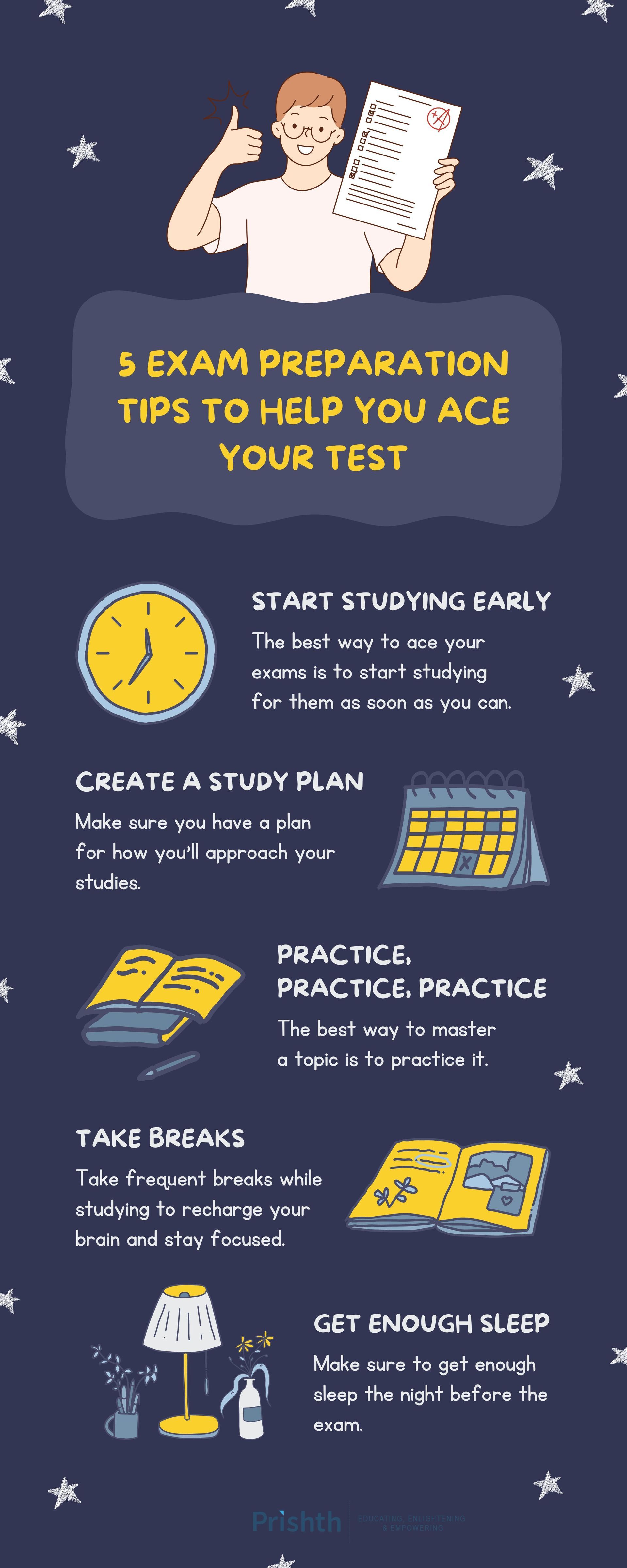Error Detection - Preparation Tips, Types, Examples
Error detection questions are a common feature in most government exams, especially those that test candidates' proficiency in the English language. These questions require the candidate to identify and correct errors in a given sentence or passage. Being able to accurately identify errors is crucial, as it can be the difference between passing or failing the exam.
We will explore the different types of error deduction questions and provide some tips and tricks to help you ace these questions in your next government exam.

Types of Error detection Questions
The pattern on which questions are asked in Error Detection may vary depending on the exam and the organization conducting it. However, in general, the following are the common patterns on which Error Detection Questions are asked:
A. Grammatical Errors
- Subject-verb agreement: This error arises when the subject and verb in a sentence do not agree in number.
For example, "The group of boys are playing cricket" should be "The group of boys is playing cricket." - Tenses: Tense errors occur when the wrong tense is used in a sentence.
For instance, "I was going to the market when he calls me" should be "I was going to the market when he called me." - Pronouns: Pronoun errors are common when the wrong pronoun is used in a sentence.
For example, "Me and my friend went to the mall" should be "My friend and I went to the mall." - Articles: Article errors occur when the wrong article is used in a sentence.
For instance, "She is eating an apple" should be "She is eating the apple."
B. Vocabulary Errors
- Synonyms and Antonyms: Candidates are required to identify the correct synonyms and antonyms for a given word.
For example, "Amiable" is a synonym of "friendly," while "Hostile" is an antonym of "friendly." - Homophones and Homonyms: Candidates are required to identify the correct spelling and meaning of homophones and homonyms.
For instance, "Their" and "There" are homophones, while "Bank" can mean a financial institution or the side of a river. - Contextual usage of words: Candidates are required to identify the correct usage of words in a given context.
For example, "He was awarded the medal for his exceptional valor" is correct, while "He was awarded the medal for his exceptional valour" is incorrect.
C. Spelling Errors
- Commonly misspelled words: Candidates are required to identify and correct commonly misspelled words.
For instance, "Accommodation" is commonly misspelled as "Acommodation." - Confusing spellings: Candidates are required to identify the correct spelling for words that are commonly confused.
For example, "Definitely" is often confused with "Definitly."
D. Sentence Formation Errors
- Run-on sentences:
Run-on sentences occur when two or more independent clauses are joined together without proper punctuation. For instance, "She loves to dance she is always performing in shows" should be "She loves to dance, and she is always performing in shows."
- Sentence fragments: Sentence fragments occur when a sentence is incomplete and lacks a subject or a verb. For example, "In the morning, before school" is a sentence fragment.
- Incorrect sentence structure: This error arises when the sentence structure is incorrect, leading to awkward phrasing. For instance, "He is always helping others, selflessly" should be "Selflessly, he is always helping others."
Tips to Solve Error detection Questions
Cloze tests are a type of language assessment that involves removing words from a text and asking the reader to fill in the blanks with the correct words. Improving your cloze test skills can be a valuable way to improve your overall language proficiency. Here are some tips to help you improve your cloze test skills:
- Read the question carefully: Error detection questions often involve tricky and subtle errors. Make sure to read the question carefully to identify the error.
- Identify the type of error:
There are several types of errors that can occur in a sentence, such as subject-verb agreement errors, pronoun errors, tense errors, and so on. Identifying the type of error can help you narrow down your options.
- Understand the context of the sentence:
The context of the sentence can give you clues about what the correct answer should be.
- Eliminate options:
After identifying the error and understanding the context, eliminate options that don't fit. This can help you narrow down the choices and increase your chances of finding the correct answer.
- Take educated guesses:
If you're unsure about an answer, take an educated guess based on your knowledge of grammar and context. Eliminate options that you know are incorrect, and choose the one that seems the most likely to be correct.

Examples:
Directions: In each of the questions, a sentence has been divided into four parts, one of which may contain an error. Identify that fragment and mark it as your answer. The words in bold are contextually and grammatically correct. Mark (E) if the sentence contains no error.
1. The lawyer asked the witness (A)/ if they were (B)/ certain about their (C)/ testimony or not. (D)/ No error (E)
Solution: Option B
The error in the given sentence is in part B, where
the pronoun "they" is used incorrectly. "They" is a plural pronoun, but in this case, it is referring to a singular noun "witness." The correct pronoun to use is "he" or "she" depending on the gender of the witness. The correct sentence should be "The lawyer asked the witness if he or she was certain about their testimony or not."
Hence, the corrected sentence would be:
The lawyer asked the witness if he or she was certain about their testimony or not.
2. The committee spent hours discussing the issue
(A)/, however,
(B)/ they still failed to come up
(C)/ with a viable solution.
(D)/ No error
(E)
Solution: Option B
The error in the given sentence is in part B, where
the word "however" is used incorrectly. "However" is a conjunction that shows a contrast between two clauses. In this case, there is only one clause before "however," so it is not used correctly. The correct sentence should be "The committee spent hours discussing the issue but still failed to come up with a viable solution."
Hence, the corrected sentence would be:
The committee spent hours discussing the issue but they still failed to come up with a viable solution.
3. Despite the heavy rain, the cricket match (A)/ was continued (B)/ as the players (C)/ did not want to disappoint their fans. (D)/ No error (E)
Solution: Option B
The error in the given sentence is in part B, where the word "was continued" is used incorrectly. The correct form of the verb should be "was continued" or "continued", but not "was continued". The correct sentence should be "the cricket match continued despite the heavy rain".
4. The new employee was surprised (A)/ at the workload (B)/ they were assigned (C)/ during their first week. (D)/ No error (E)
Solution: Option C
The error in the given sentence is in part C, where
the pronoun "they" is used incorrectly. "They" is a plural pronoun, but in this case, it is referring to a singular noun "employee." The correct pronoun to use is "he" or "she" depending on the gender of the employee. The correct sentence should be "The new employee was surprised at the workload he or she was assigned during their first week."
Hence, the corrected sentence would be:
The new employee was surprised at the workload he or she was assigned during their first week.
5. She was not only
(A)/ the youngest student in the class
(B)/ but also
(C)/ the most talented.
(D)/ No error
(E)
Solution: Option E
The given sentence is grammatically correct and contextually appropriate, and there is no error in the sentence. Hence, the answer is (E) No error.

Directions (6 -10): In the questions given below, a statement has been expressed in four different ways. You are required to choose the one/s which is/are correct grammatically and contextually.
Question 6:
I. The emergence of social media has revolutionized the way people communicate with each other.
II. Social media has brought about a revolution in the way people communicate with each other.
III. The way people communicate with each other has been revolutionized by the emergence of social media.
IV. People's communication with each other has been revolutionized by social media's emergence.
A. Only I and II
B. Only I and III
C. Only II and III
D. Only II and IV
E. All of the above
Solution:
The correct answer is E) All of the above, as all the given options are grammatically and contextually correct.
Let's analyze each option to understand why it is correct:
I. The emergence of social media has revolutionized the way people communicate with each other.
This sentence is grammatically correct and contextually appropriate, as it conveys the idea that the advent of social media has brought about a significant change in the way people interact and communicate with each other.
II. Social media has brought about a revolution in the way people communicate with each other.
This sentence is also grammatically correct and contextually appropriate, as it expresses the same idea as the first sentence but in a different way. The phrase "brought about a revolution" emphasizes the magnitude of the change that social media has brought about.
III. The way people communicate with each other has been revolutionized by the emergence of social media.
This sentence is grammatically correct and contextually appropriate as well, as it conveys the same idea as the first two sentences but with a slightly different structure. It emphasizes the impact of social media on the way people communicate with each other.
IV. People's communication with each other has been revolutionized by social media's emergence.
This sentence is also grammatically correct and contextually appropriate, as it conveys the same idea as the previous options, but in a different way. The use of possessive form "social media's emergence" implies that social media is the driving force behind the change in communication patterns.
Therefore, all the given options are grammatically and contextually correct, making the answer E) All of the above.
Question 7:
I. The company will be closing down the factory due to financial difficulties.
II. The closure of the factory has been decided by the company due to financial difficulties.
III. Due to financial difficulties, the factory will be closed down by the company.
IV. The factory will be closed down by the company because of financial difficulties.
A. Only I and IV
B. Only II and III
C. Only I and III
D. Only III and IV
E. None of the above
The correct answer is D) Only III and IV,
as the other options contain grammatical errors or do not convey the same meaning as the original sentence.
- Option III and IV convey the same meaning as the original sentence, where the company is closing down the factory due to financial difficulties.
- Option I is grammatically correct, but it changes the focus of the sentence by emphasizing the company instead of the factory.
- Option II is also grammatically correct, but it implies that the closure of the factory is already a done deal, whereas the original sentence only states that the company will be closing down the factory in the future.




